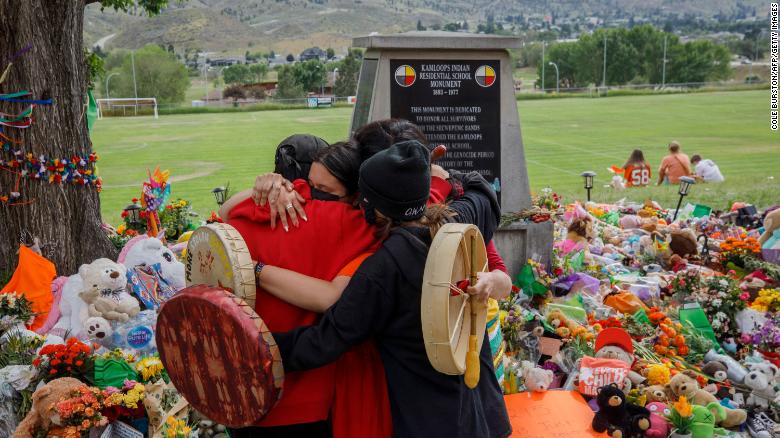On a typical July 1, cities across Canada turn red and white as fireworks light up the sky and inhabitants gather to celebrate Canada Day, also known as the Canadian Fourth of July.
However, in light of the recent discovery of the remains of hundreds of Indigenous children at former residential schools designed to eliminate their cultures, many cities and towns are considering reducing or cancelling Canada Day celebrations altogether to make room for those who have lost loved ones.
It has forced many of them to confront the same issues that Indigenous peoples have been struggling with for decades: how can we balance the good of Canada's past - the things that give us a feeling of national pride – with the bad? Should the country that perpetrated these horrors be praised?
Also Read: Canada Day 2021: From history, Significance to Events, here’s all you need to know about the day
Judy Wilson is one of many Indigenous leaders that believe Canada Day should be cancelled. She is the kkpi7 (chief) of the Neskonlith Indian Band, which is located roughly 30 miles from the Kamloops Indian Residential School, where the bodies of 215 Indigenous children were discovered in late May.
The discovery of 751 unmarked graves at the Marieval Indian Residential School in Marieval, Saskatchewan, was followed last week.
She wonders aloud, "What is there to celebrate at this point?" “How do you move on with such heinous genocide — ongoing genocide – that is well-known but rarely discussed or taken seriously outside of [Indigenous] communities?”
Indigenous peoples and the governments that conquered their homelands have had similar conflicts all across the world. Many Native Hawaiians in the United States regard July 4th as a reminder of their loss of sovereignty at the hands of the American government. Similarly, Native Americans frequently mark a National Day of Mourning in lieu of Thanksgiving, rearranging a holiday they view as a celebration of the theft of their lands into one that honors their ancestors.
Not time to celebrate?
Although there have been requests to cancel Canada Day in the past, this is the first time that local governments have taken action. A few notable cities, such as Victoria and Fredericton, the capitals of British Columbia and New Brunswick, respectively, have cancelled their Canada Day celebrations after receiving advice from Indigenous partners.
“How could we celebrate when our neighbours — the people on whose land [Victoria] was built – were suffering?” In a statement to the press, Victoria Mayor Lisa Helps said. “How could we have a Canada Day celebration without the Lekwungen, who have been a part of it for a decade?”
According to Indigenous rights group Idle No More, more than 50 towns throughout Canada have cancelled July 1 celebrations.
However, not everyone, particularly outside of Indigenous communities, shares these viewpoints.

Some critics, such as British Columbia Premier John Horgan and Conservative leader Erin O'Toole, have claimed that calling for the cancellation of Canada Day celebrations is useless, comparing it to "cancel culture.”
“When you look at the meaning of reconciliation, it involves bringing two parties together again. “Canceling Canada Day goes against the definition of reconciliation,” argues Ellis Ross, a former chief councillor of the Haisla Nation and a member of British Columbia's provincial parliament.
Mr. Ross used the city of Kamloops as an example, where Rosanne Casimir, kkpi7 (chief) of the Tk'emlps te Secwépemc – the nation that discovered the unmarked graves at the Kamloops residential school – is working with the city to “incorporate messaging into this year's virtual Canada Day event that will encourage education on Indigenous culture and heritage,” according to a statement released by the city.
Mr. Ross says, "Canada is a good country, and I don't think we should be ripping it apart." “How do we build it up together?” we should be thinking.
However, scrapping Canada Day and acknowledging the past and present defects in Canada's colonial system is an essential aspect of building the country up for Sara Cadeau, an Idle No More organiser of Anishinaabe descent.
On July 1, she and fellow Idle No More organiser and Nehiyaw hip-hop musician Dakota Bear will co-lead #CancelCanadaDay rally in Vancouver, one of many rallies taking place around the country.
According to Mr. Bear, “the initiative, spearheaded by Idle No More and expanding on last year's event, aims to spotlight Indigenous leaders' work, urge non-Indigenous people to action, and “start a peaceful revolution”.





